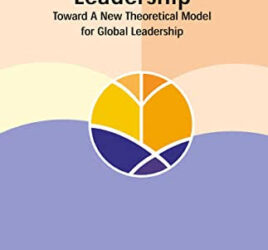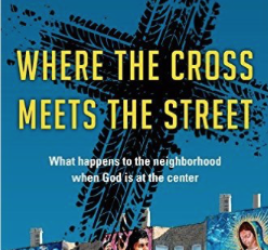In the revised and expanded 2011 edition of Walking with the Poor, author Bryant Myers has provided fresh insights and relevant up-to-date information from agencies and the development community around the world. Now a professor of international development at Fuller Theological Seminary, Myers has widened his scope of resources since leaving his executive role at World Vision. With this revision, Myers aims “to describe a proposal for understanding the principles and practice of transformational development … from a Christian perspective” (Myers 2011). Integrating three streams of thought, Myers presents a well-rounded case for Christian transformational development work from theological, experiential and international perspectives.
The 350 pages of densely packed information and illustrations form a foundational piece of work on which a Christian can build a solid and holistic framework for development work. I thoroughly enjoyed plowing through the first 100 pages on the origins of ideas and theological perspectives of poverty and development. Myers challenges the modern dichotomous worldview, which sees poverty as merely a lack of material resources and social justice. Modern development, therefore, is focused on meeting these material and social needs. “At the end of the day,” Myers states, “the causes of poverty are spiritual” (2011), which is the starting point of a Christian transformational perspective.
Sin has caused distortions in mankind’s relationships with God, creation, community, others, and self. We need to realize that “in God’s sight all human beings are poor” (Myers 2011). This includes the so called ‘non-poor’ who also suffer from a marred identity in relation to God’s image. According to Wink, the wealthy suffer from delusional assumptions which leads them to think they are right dominate others, that men are superior to women, that their culture is above other cultures, that wealth is more important than health or relationships, and so forth. “Poverty of the non-poor is harder to change” (Myers 2011), thus it is better to pray, “Give me neither poverty nor riches, but give me only my daily bread” (Proverbs 30:8).
Only transformed people can transform their world. Both the development worker and the recipient are in need of ongoing transformation. The goal, then, is to transform people through recovering identity and vocation, and restoring relationships with God, creation, community, others, and self. The poor need to believe they are created as God’s children in God’s image, given gifts to contribute, and called to be stewards of God’s creation. The non-poor need to reject their god-complex, see their gifts as means to help and not control others, and perceive themselves as servants rather than masters. Focusing on relationships instead of problems is a good start. “We cannot know poverty,” says Koyama, but “we can know a poor person” (Myers 2011). As one Latino Catholic theologian proposes, we can accompany poor persons by loving them in concrete ways as members of our own family; i.e. we can learn to walk with the poor.
“Too often Christian development professionals see the church as a distraction, or worse, an impediment to transformation,” says Myers (2011). Both parties are at fault, however, by either thinking development work is not spiritual or by supposing the church is not professional. Since “the work of holistic mission belongs to the church,” Christian development agencies run the risk of secularization “if [they] lose sight of the local church” (Myers 2011). Through our Love Hanoi campaign, we at HIF hope to close this gap. Love Hanoi is a church-based initiative, gathering both church and NGO leaders together to collaborate in seeking city-wide transformation. Our focus must be on walking with the poor, seeking to change the identities and vocations of poor persons, and helping them in restoring their relationships with God, creation, community, others, and self. Only transformed people (poor and non-poor alike) will transform our city!
By Jacob Bloemberg




